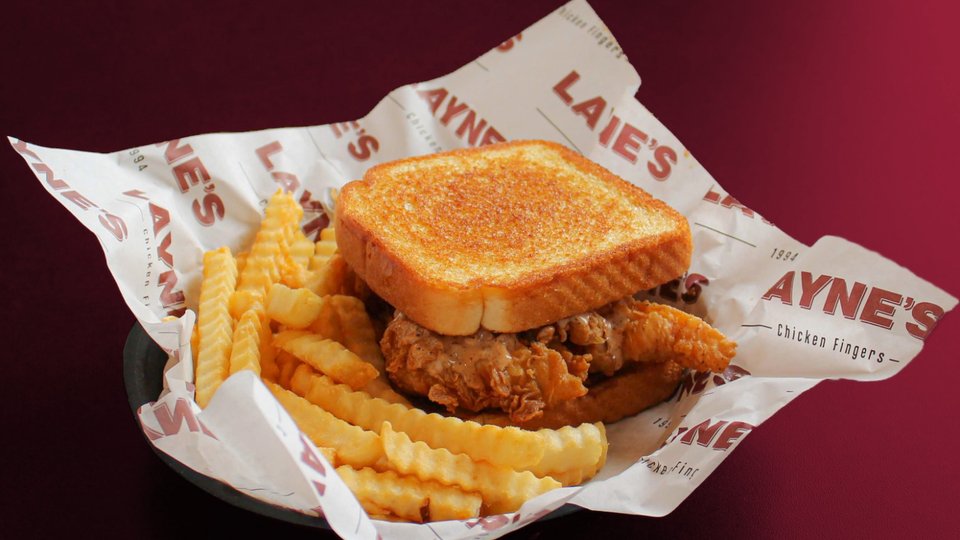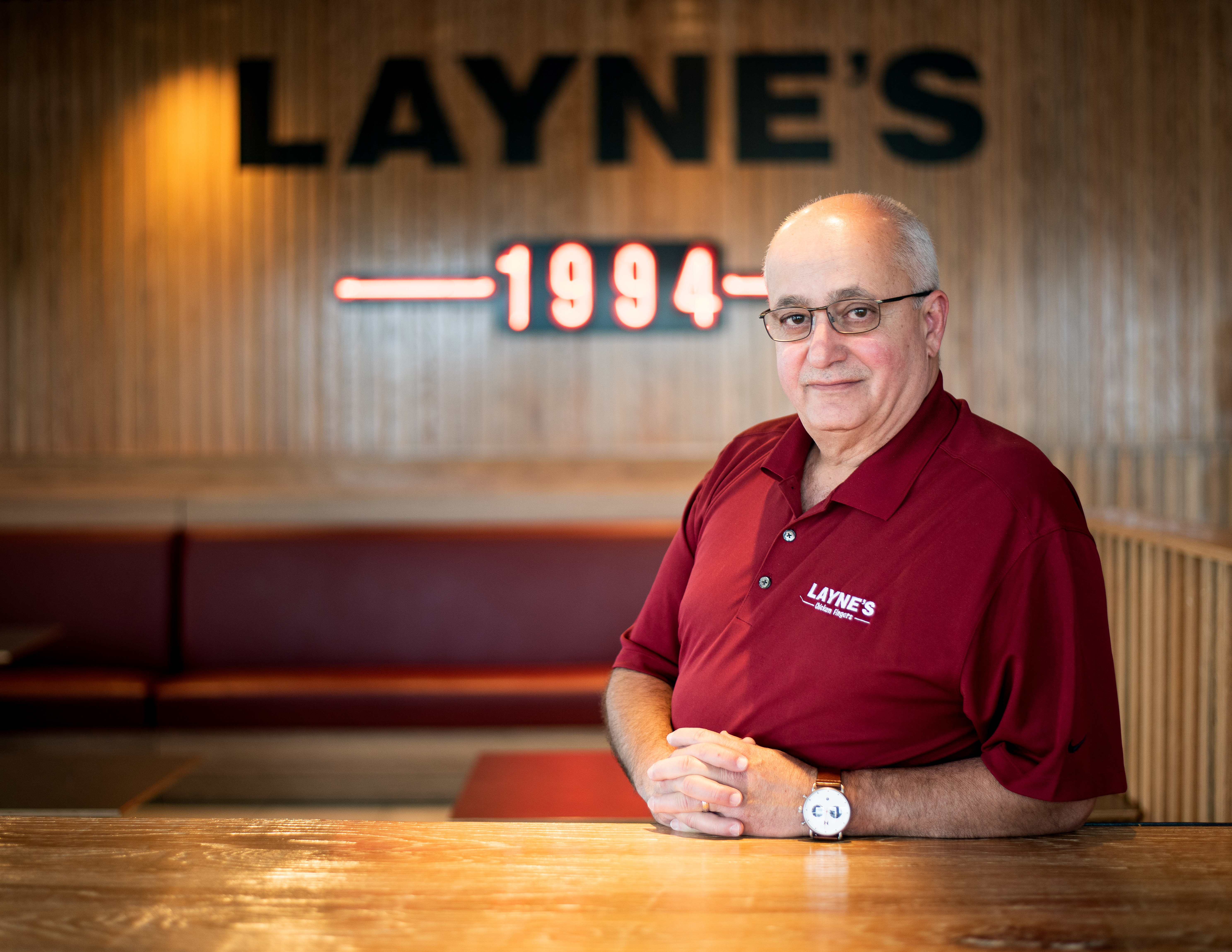Operations
How Layne's Chicken Fingers is battling shortages, pandemic impact
Eight-unit Layne's Chicken Fingers felt the chicken shortages earlier this year, but weathered through. Samir Wattar, the company's chief operating officer, explains how the brand managed the challenges brought on by the COVID-19 pandemic.

November 8, 2021 by Mandy Wolf Detwiler — Editor, Networld Media Group
When chicken shortages hit the nation last spring, it forced many restaurant brands to pay double and even triple the prices for goods. The chicken crisis was caused in part by inclement weather in Texas, poor performance by new roosters at some of the nation's top poultry plants and supply chain issues plaguing just about every industry.
So what does a brand do when chicken is at the top of the menu? At Texas-based Layne's Chicken Fingers, chicken is the menu. The eight-store brand serves chicken fingers, a chicken finger sandwich, a grilled cheese, fries and potato salad. So how did the chicken shortage affect Layne's Chicken Fingers?
QSRweb reached out to Chief Operating Officer Samir Wattar to learn how the company weathered the national shortages and is still managing to grow.
Q. Layne's Chicken Fingers have a tight menu. How did the chicken shortage affect the brand?
A. To say the least, it has been very, very challenging to find chicken. As a matter of fact, I had a contract with a processor that expires next February. About 60 or 90 days ago, he broke the contract because he couldn't get raw materials, and he gave me two-weeks' notice. He said 'I can't sell you chicken.' It was frustrating, but I understand the market and the way that it was, but there's nothing I can do about that.
Q. To what did you attribute the chicken shortages?
A. It's a combination of a lot of things. I cannot say one thing is what caused it. The weather that we had, especially here in Texas, and around the state, the freeze – I know a few plants had to shut down and they lost a lot of chicks. They lost eggs. It's the pandemic, the weather, the labor shortages that everybody's facing … to some extent the prices are high because of transportation. To get a truck from point A to point B is costing a lot more than it used to cost last year or the year before. It's a perfect storm, and everything is kind of coming together. There is a lot of raw material available. There are a lot of birds ready to be harvested. But once they're harvested, and there's two tenders on each chicken, the people that process these birds – they're not available. I know of plants that used to run 24 hours a day. They're running two (shifts) or maybe one and a half. That's creating a lot of shortages on the chicken tenders.
 Q. And what did you do to counteract the contract you lost?
Q. And what did you do to counteract the contract you lost?
A. We have had great relationships with vendors for quite a while and when the vendors or the processors or the chicken farms and the plants trust you and know who you are, they'll jump in to help you. Luckily, I was able to make a few calls and I actually had three of them call me back and say 'Hey, Samir, we heard you were out of chicken. We can supply you.' But I had to pay the current market rate. So I took about a 75% increase in my raw materials. So far, we've been surviving. I'm okay from now until the end of the year, and I'm hoping things will get better by (then) so we can plan for 2022. I'm in the middle of negotiating with a couple of them right now … I want vendors to treat me the way I treat my customers and I expect myself to treat my vendors the way I treat my customers. We're a partnership. It's not always about finding the better price. It's about building the relationship with vendors. They're in it to make money, I'm in it to save money. I'm sure in the middle, we can meet.
Q. How has Layne's weathered the pandemic overall?
A. We're a drive-thru concept, so that kind of helped us. We're a brand-new company. We've been around since 1994, but actually when my partners bought the brand in 2017, they wanted to reestablish the brand and grow it and take it to the next level. They've opened three stores in the Dallas area, and it's kind of helped them with the drive-thru model. It put us on the map. People did not realize what Layne's was unless they came from College Station (Texas) or they are (Texas A&M) Aggies. So the pandemic helped the brand a little bit by creating more brand awareness and we carried that momentum. I came here in February of this year, and we're still carrying that momentum forward. We're high double digits over 2019 right now.
The biggest issue that we have other than chicken is labor shortages. We're struggling like everybody else trying to figure it out. We take care of our people. We have a culture and people want to work for us but we're fighting with everybody for the same people. … Every other material that we buy is increasing, whether it's paper cups or containers to go. Everything else is increasing and labor is increasing. As of right now, we haven't had a price increase, but we're looking at it.
Q. Layne's has some phenomenal growth ahead. What are your expansion plans?
A. We currently have eight locations. We have two under development now and we've sold about 60 franchises to multiple multi-unit franchisees. We've been privileged and blessed. People love the food and like what we're doing and we're going from there. … It's mainly in the state of Texas. Our Houston market is sold. Corpus Christi is sold. DFW (Dallas-Ft. Worth) we split in half and one market is completely sold. We're currently in negotiations with a franchisee for the state of New Jersey and Pennsylvania. … Anybody can open a chicken restaurant or a burger joint. They buy in to get the systems and the support of the franchisor. It's from site selection to training and to procurement and distribution.
About Mandy Wolf Detwiler
Mandy Wolf Detwiler is the managing editor at Networld Media Group and the site editor for PizzaMarketplace.com and QSRweb.com. She has more than 20 years’ experience covering food, people and places.
An award-winning print journalist, Mandy brings more than 20 years’ experience to Networld Media Group. She has spent nearly two decades covering the pizza industry, from independent pizzerias to multi-unit chains and every size business in between. Mandy has been featured on the Food Network and has won numerous awards for her coverage of the restaurant industry. She has an insatiable appetite for learning, and can tell you where to find the best slices in the country after spending 15 years traveling and eating pizza for a living.
 ChatGPT
ChatGPT Grok
Grok Perplexity
Perplexity Claude
Claude








